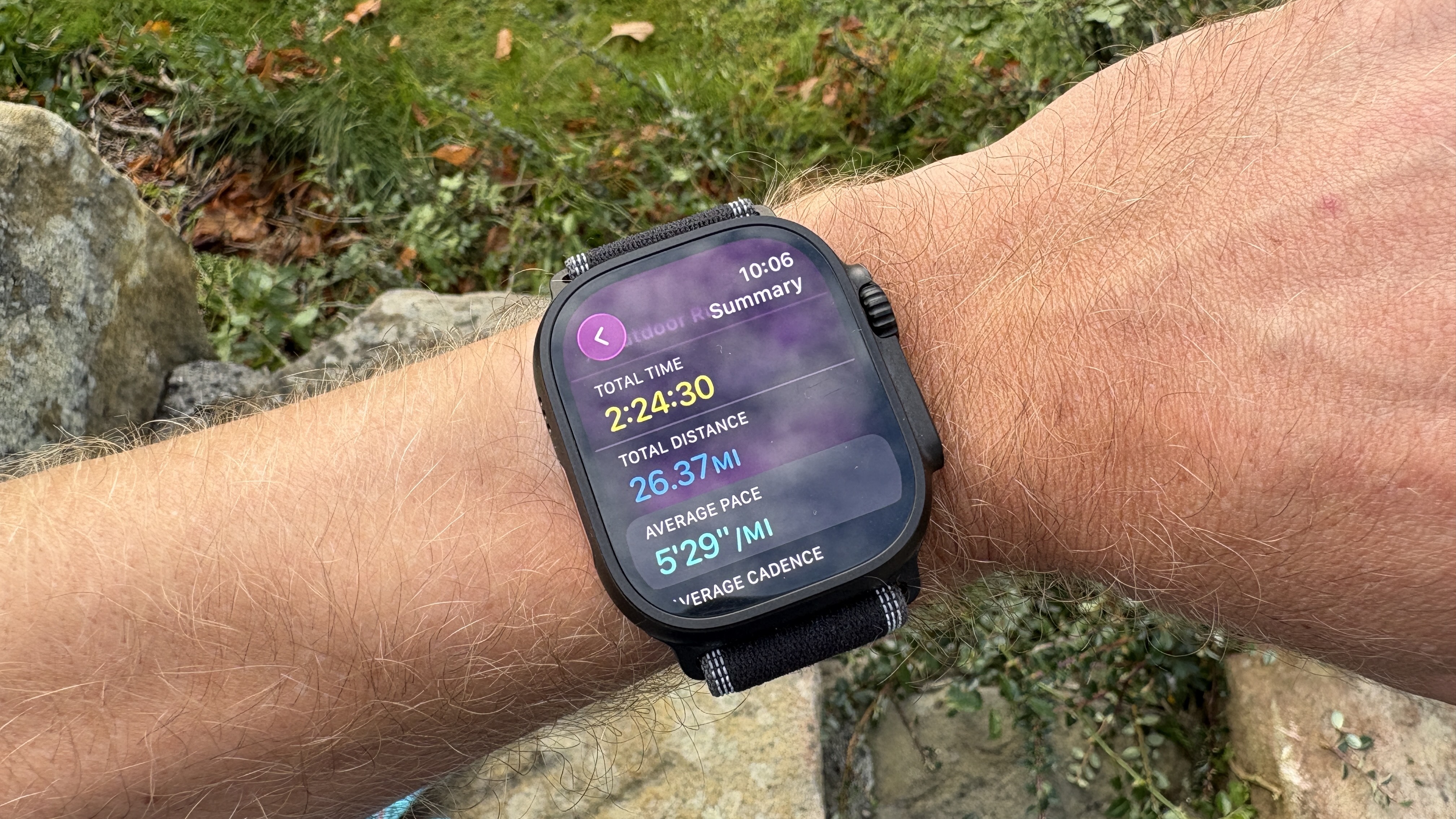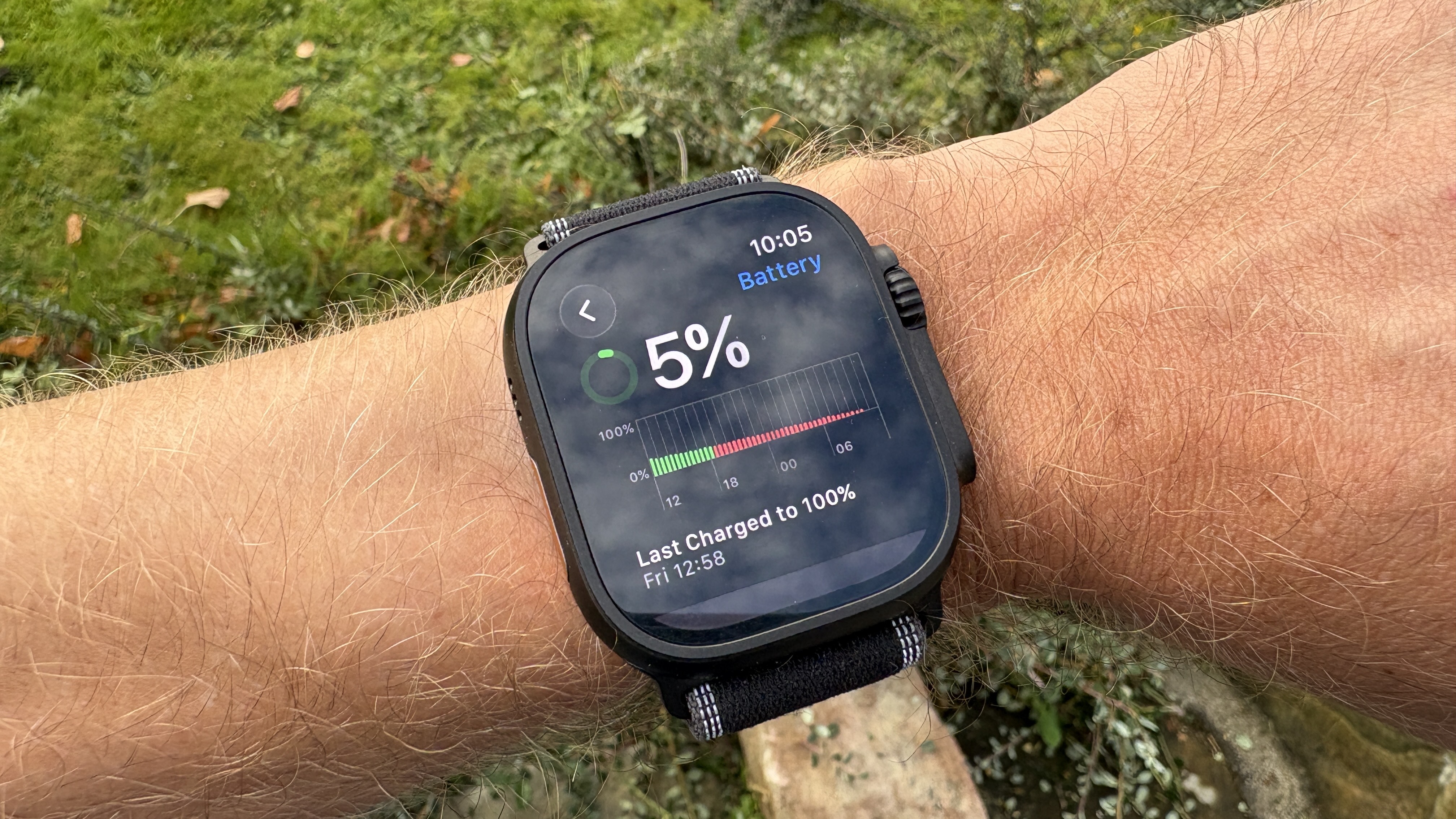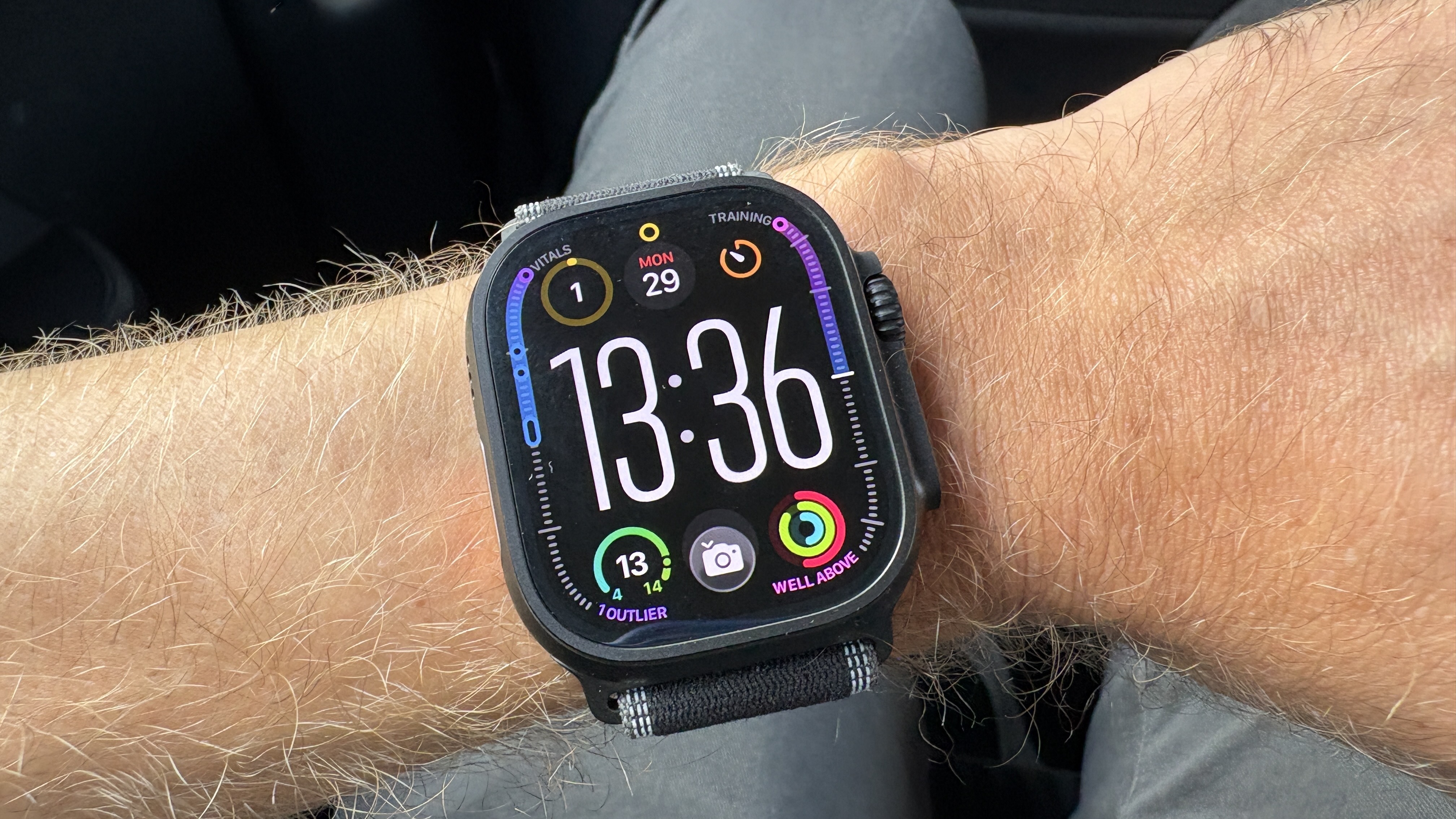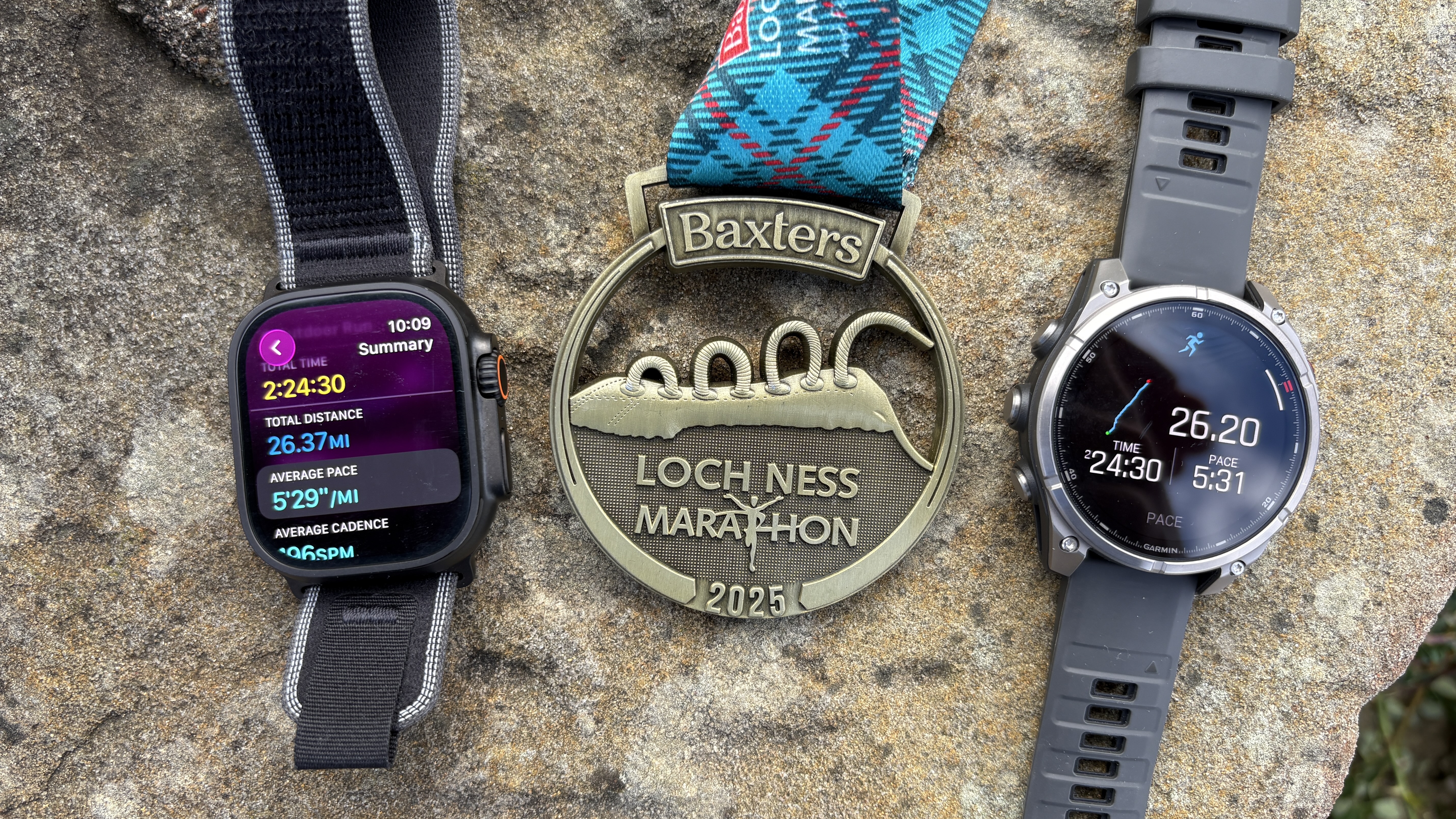I tested the Apple Watch Ultra 3 battery life with a marathon and it shocked me
Battery anxiety begone!

Here at Tom’s Guide our expert editors are committed to bringing you the best news, reviews and guides to help you stay informed and ahead of the curve!
You are now subscribed
Your newsletter sign-up was successful
Want to add more newsletters?

Daily (Mon-Sun)
Tom's Guide Daily
Sign up to get the latest updates on all of your favorite content! From cutting-edge tech news and the hottest streaming buzz to unbeatable deals on the best products and in-depth reviews, we’ve got you covered.

Weekly on Thursday
Tom's AI Guide
Be AI savvy with your weekly newsletter summing up all the biggest AI news you need to know. Plus, analysis from our AI editor and tips on how to use the latest AI tools!

Weekly on Friday
Tom's iGuide
Unlock the vast world of Apple news straight to your inbox. With coverage on everything from exciting product launches to essential software updates, this is your go-to source for the latest updates on all the best Apple content.

Weekly on Monday
Tom's Streaming Guide
Our weekly newsletter is expertly crafted to immerse you in the world of streaming. Stay updated on the latest releases and our top recommendations across your favorite streaming platforms.
Join the club
Get full access to premium articles, exclusive features and a growing list of member rewards.
Battery life is usually measured in days or weeks with the best sports watches, so the news that the Apple Watch Ultra 3 had six more hours of juice didn’t initially sound that impressive to me.
However, I’ve used the Apple Watch Ultra 2 to run marathons before, and I know that Apple tends to be conservative in its battery estimates, so I was keen to see if the Apple Watch Ultra 3 could surpass the 42 hours it’s listed as lasting.
I had a trip to Inverness in Scotland lined up to run the Loch Ness Marathon, so I charged the Ultra 3 to 100% at 1pm on Friday afternoon to see how far through the weekend it could last.
The results were surprising, impressive and actually gave me a real shock. The watch didn’t run out of juice until Monday afternoon, just before I arrived home from the trip, and I had no fear of it dying during the marathon on Sunday morning.
Loch Mess Marathon battery test

I used the Apple Watch Ultra 3 normally throughout the weekend, with the screen always-on and for sleep tracking on Friday and Sunday night.
I did take it off for the night before the marathon because I don’t look at any sleep tracking info on the morning of a race, so it saved some battery then by automatically going into low-power mode overnight.
Along with the marathon itself I also used the watch to track my shake-out run on the Saturday, and I used normal tracking settings for those runs, not the low-power GPS. I didn’t listen to music using the watch on the runs though, which can be a big battery drain.
Get instant access to breaking news, the hottest reviews, great deals and helpful tips.

On the morning of the race — 44 hours after I charged it — the watch still had 51% battery, meaning I was confident it would last the event without a top up.
I finished the race in 2:24, and when I checked the battery shortly afterwards the Apple Watch Ultra 3 still had 27% left.
Naturally, a longer marathon time will drain more battery life, but there was enough juice left for a few more hours of running when I finished.
When I woke up the next morning, the battery life was in the red, but it still lasted the flight home. I put it into low-power mode when it hit 2% and that got me another hour or so — you could definitely extend the life longer with some strategic low-power stints.
How does it compare to sports watches?

While three days of battery life including a marathon was impressive for the Apple Watch Ultra 3, you certainly can get more from the best sports watches.
I had the Garmin Fenix 8 Pro on my other wrist and it was still at 33% when I got home on Monday, having charged it to 100% at the same time as the Ultra 3. I also used the Fenix 8 Pro’s power-intensive LiveTrack feature during the marathon, which was sending my location to my family using its built-in LTE throughout.
Even smaller watches than the Fenix 8 Pro, like the Garmin Forerunner 970, will comfortably outlast the Ultra 3, but the Ultra 3 is a true smartwatch that’s more useful day-to-day — it showed my boarding passes for the flights to Inverness, as one example.
The Ultra 3 also charges incredibly quickly, and given that it now lasts over two days comfortably even with heavy use, you’re always likely to find a 30 minute window to charge it in that time.
Follow Tom's Guide on Google News and add us as a preferred source to get our up-to-date news, analysis, and reviews in your feeds. Make sure to click the Follow button!
More from Tom's Guide
- I tried the new Apple Watch faces in watchOS 26 and there’s a clear winner
- Apple Ring — everything we know so far about Apple's rumored smart ring
- Garmin Fenix 8 vs. Garmin Fenix 8 Pro: should you upgrade?

Nick Harris-Fry is an experienced health and fitness journalist, writing professionally since 2012. He spent nine years working on the Coach magazine and website before moving to the fitness team at Tom’s Guide in 2024. Nick is a keen runner and also the founder of YouTube channel The Run Testers, which specialises in reviewing running shoes, watches, headphones and other gear.
Nick ran his first marathon in 2016 and became obsessed with the sport. He now has PBs of 2hr 25min for the marathon and 15min 30sec for 5K. Nick is also a qualified Run Leader in the UK.
Nick is an established expert in the fitness area and along with writing for many publications, including Live Science, Expert Reviews, Wareable, Coach and Get Sweat Go, he has been quoted on The Guardian and The Independent.
You must confirm your public display name before commenting
Please logout and then login again, you will then be prompted to enter your display name.
 Club Benefits
Club Benefits










